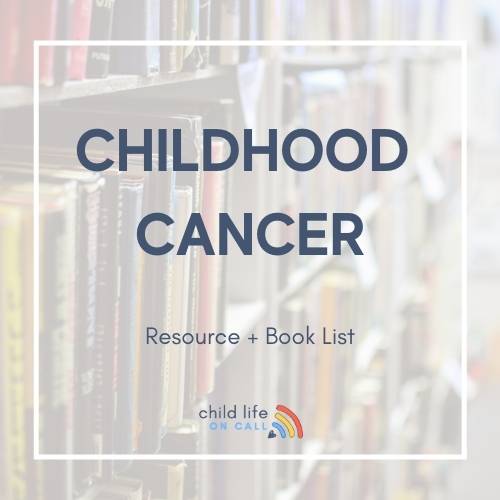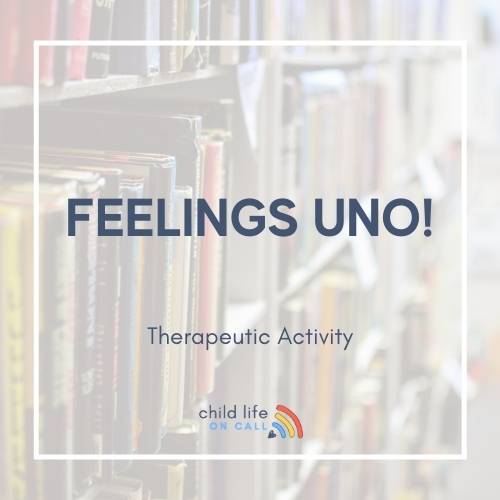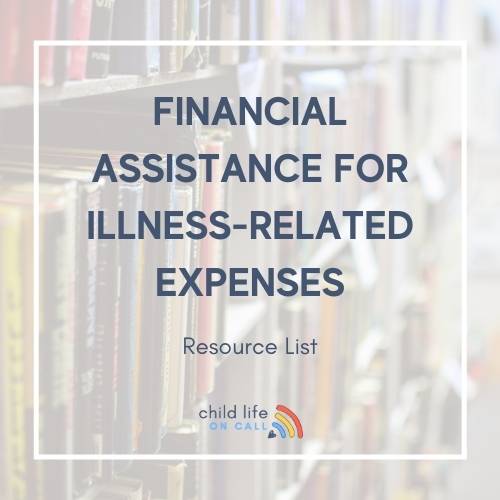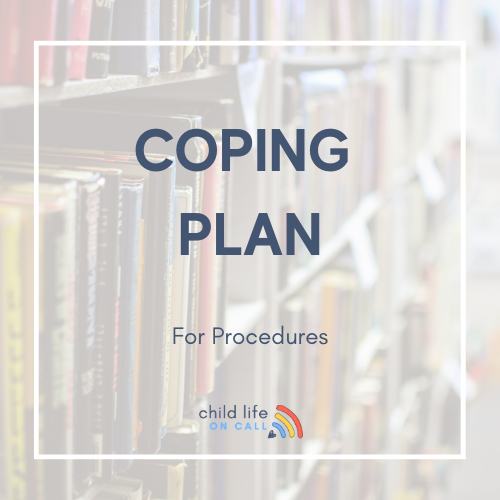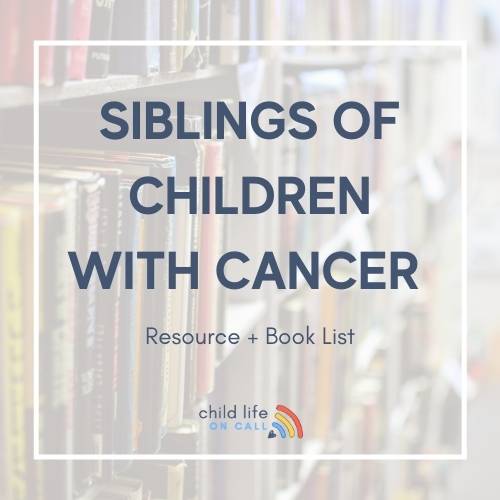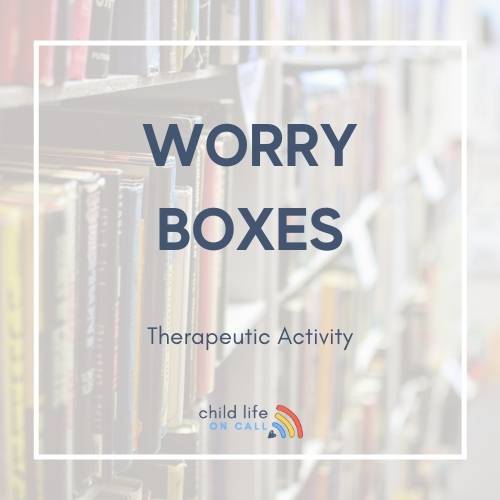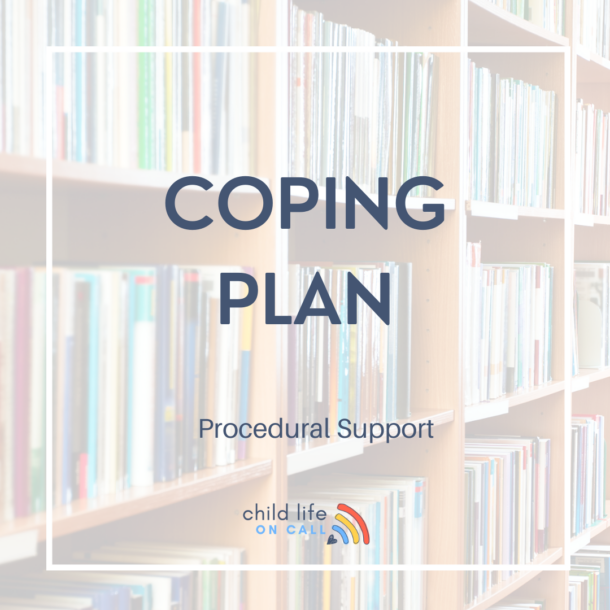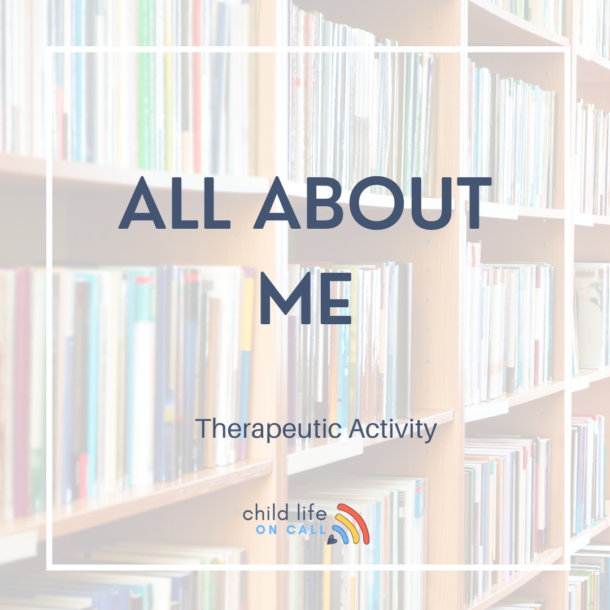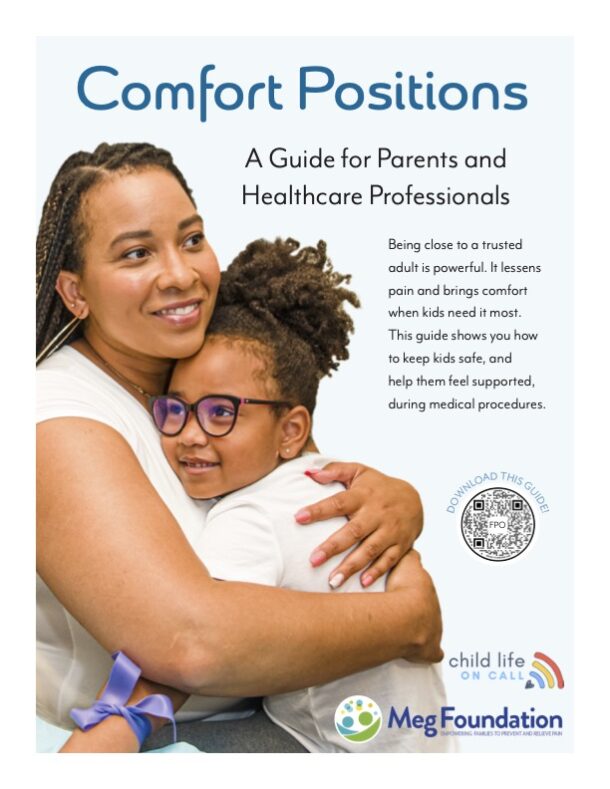The first sign of sniffles, or worse, shouldn’t send you into a tailspin. Feel confident in your role as a parent and advocate, no matter what medical situation you’re facing.
See a full transcript of Episode 198: Jennifer Canvasser's Story below.
00:00:39 As a Child Life On Call specialist, my role is to support, validate and provide emotionally safe spaces for kids and their families, and I am so honored to be on this journey with you. In addition to parent stories, we sprinkle in some expert episodes every now and again that have content for both parents and professionals in the field of healthcare, all with the mission to empower parents to be confident advocates and partners with the care team during healthcare experiences. We’re so glad you’re here. Hello, my friends. I’m so glad that you’re here today. 00:01:11 And today we get to speak with Jennifer, who is the Executive Director and founder of the NEC Society. She is also a mom who has lost her son to Necrotizing intercollitis, and it is often referred to as neck in the NICU. And as you’ll learn, Necrotizing intercollitis can affect many, many babies and is always of utmost importance for parents to be aware of while their child is in the NICU. And again, I do want to preface this with ultimately, Jennifer did lose her son, but she speaks so much about advocacy and awareness that this is a really important episode to listen to. But I understand if you don’t want to hear about child loss right now, that it’s just not something that is meant for you in your day to day. 00:02:04 Then you can skip this episode and come back to it at a different time. But awareness about this is so key. And you’ll learn about Jennifer’s story that her son did get neck during his NICU stay, but ultimately came home. And it’s a really important story for you to listen to. So, Jennifer, I loved getting to meet you at the American Academy of Pediatrics conference. 00:02:29 I am in awe of what you have done and created at the NEC Society and I’m so grateful that you’re here on this podcast today. 00:04:05 I’m Jennifer Canvasser. I’m the founder and executive director of the Necrotizing Intra Colitis Society. But more importantly than that, I am Micah, Zachary and Elijah’s mama. And this is my niece Mira, who’s with us today. We’re getting all the baby love getting to see you here. 00:04:23 And I am on this podcast with you because my twins, Micah and Zachary were born at 27 weeks gestation and I was thrown into the NICU world very unprepared, like most NICU parents are. I never imagined being in the NICU. I did everything right, and then it suddenly all went wrong. Despite my best efforts, I think that’s probably pretty common among and, you know, we figured out how to be NICU parents, my husband, and know, in the weeks that Mike and Zachary were born, and they were born weighing about two pounds each and other know, needing to figure out how to breathe and eat and just kind of normal, preemie things. They were doing really well. 00:05:07 And so by the time they were six weeks old, I was like, oh, my gosh, we’re going to be out of the NICU soon. They were both doing great. They had doubled their birth weight. They were beginning to nurse at the breast, and I could just kind of breathe a sigh of relief and feel hopeful that we were going to get out of the MCU and we were going to be okay. And then Micah developed Necrotizing intraocolitis, which if you’ve never heard of the disease out there, NEC, also known as NEC, is a really devastating intestinal disease that affects babies that are born prematurely or have some other medical condition in their first, usually weeks or months of life. 00:05:44 And he got really sick really fast. He needed multiple bowel resections. He went into renal failure. But thankfully, we were at a really great children’s hospital, and they sent him up to the PICU and they placed him on continuous renal replacement therapy, which basically meant they were doing the work of the kidneys, and his kidneys never recovered. But he got stronger like Mecca kept getting better. 00:06:10 And thankfully, at this time, Zachary had been discharged and was at home doing really well, and Micah kept getting stronger. And then we were able to bring him home, which was amazing and a dream come true. But then about a month before their first, you know, was at home doing all right, but then developed a little cold, and that cold turned into pneumonia, and he was readmitted to the PICU. And then tragically, we lost Micah just before the twin’s first birthday. And you can imagine, I’m sure you’ve talked with other Bereaved moms before. 00:06:43 It’s just absolutely devastating. It’s devastating forever. It’s a loss that I will never, ever get over. That level of heartache is like no other. It’s a lifetime of loss. 00:06:55 And so I looked around after I’d gone through about a year of just like, intense grieving, I’m like, who’s working on necrotizing colitis? And I was just desperate to learn more. So I was reading and just trying to understand the disease and the community and the field of NEC, and I was really shocked to find no one really working on neck. There were, thankfully, individual researchers and scientists, but there was no one bringing everyone to the table. And so that’s why I founded the NEX Society. 00:07:26 And what brings me here with you. Today, you are one amazing person, and we are so grateful that you get to share Micah and your other family members with us here. I would love to hear a little bit just about Micah. Tell me a little bit about his personality and something that he did that just lights up your world in your heart when you think about it. Oh, my gosh. 00:07:51 Thank you for asking such a beautiful question. I love that. I think the one thing that I always hold on to about Micah is how he smiled despite just the hell, really, that he went through. I mean, a lot of his life, we couldn’t hold him and we couldn’t carry him around. Sometimes he couldn’t even be in our arms. 00:08:12 And yet, if we were there in front of him, talking with him, singing with him, reading him books, he would just light up and he would smile. And he was happy. Even though he was in intense physical pain and he was recovering from surgery, and he know wires and tubes and tape all over his beautiful little face, he would just smile and was so happy. And so I really hold on to that. And I’m like, if Micah can smile through that pain, I can smile through anything, right? 00:08:41 And it’s really shaped my life and I think my family’s life as well. I love that. Sweet Micah. What do you have of Micah’s that you love and hold on to from his time with you? Oh, my gosh. 00:08:58 I have so much, and it’s really beautiful is that Mike has two living brothers. And so I love being able to share Micah’s physical things as well as Micah’s photos and memories and things with him. But I think one of the things I love most that I hold on to is the music and the songs that we listen to. With Micah. When we were in his NICU and Picky Room, we listened to a lot of music, and it was a way for us to have a little sense of normalcy amongst the chaos. 00:09:25 And so we were lucky to have music therapy and an amazing music therapist. And when the guitar wasn’t in the room, we would put music on. And so I have really vivid memories with Micah with this music. And so now I’m able to share those same songs with his brothers, and I’m just, like, reflecting. One thing that I really hold on to and just is so beautiful, is we listen to Here Comes The Sun a lot with Micah and his NICU and Picky room, and his music therapist would play it on the guitar. 00:09:54 And so I consider that to be, like, one of Micah’s songs is Here Comes the sun. And recently, Micah’s younger brother Elijah learned how to play Here Comes the sun on the piano. Oh, my gosh. And it’s just like, such an amazing experience to hear Elijah, whose middle name is Micah, play Here Comes the Son in honor of his brother. Oh, that’s so know. 00:10:19 I’ve had the honor of speaking with some other bereaved families in my clinical work, but also on the podcast and music has come up a few times, and that now these songs are like a playlist, right? That when you need them and you hear them and it brings it back to you. And I would say that when I was working clinically with families who had lost a child, we focused a lot on what can we give you to take home, but the truth is, sometimes those things fade and prints fade and molds fall apart because that’s just the nature of art sometimes. But you’re so right that music is something that can stay with you forever. Like, we think about those songs we listened to in high school that bring up memories. 00:11:02 So how powerful. I love that. Thank you. I totally agree. How old are your other sons now? 00:11:12 So Micah’s twin is eleven. So it’s been ten years since I kissed Micah’s sweet face goodbye. And their little brother is eight, so Elijah never had the chance to meet Micah. But they are so connected and they know one another and it’s so beautiful. Like, when they’re in school and they at both for Zachary and Elijah, when their teachers ask them to draw a picture of their family, they say, how many siblings do you have? 00:11:37 Like, without me, obviously, I’m not at school with them. They include Micah in our family. It’s just so beautiful and meaningful to me because that’s how I’ve chosen to keep Micah in our family’s life, is keeping him very present, and he is my son and I have three children, and so for his brothers to recognize and include him as well is incredibly beautiful and meaningful. I love that. What amazing voice you have. 00:12:01 Thanks. Thinking back to your time in the NICU, which is just a whirlwind, right? And I’m sure there has been so much that’s just blocked out or things that just pop up out of nowhere. What were some of the things that helped you the most in getting through the day to day? Were you the type of parent who loved to write things down or go research? 00:12:25 Or did you go home to sleep at night? What are some of those things? Imagine those moms who are at the beginning of their NICU phase and are hearing the word neck, who actively have to take care of themselves. What can they do? Yeah, such a great question. 00:12:42 So I’m going to answer in a couple of different ways. So one for me. When I was in the NICU. I did. I wrote down and I kept a journal about how I was feeling, because I would write things that I would never say out loud to anybody, because either I felt too ashamed. 00:12:56 And I know that shame is not I wouldn’t say it’s not the right no one should feel ashamed for having a baby in the NICU, but it’s pretty much unavoidable, I think, for parents. It’s just natural for us to feel like we did something wrong. And so I would often write about things that I knew no one would want to hear me say. And I would write things down that I heard other people in the NICU say and questions. So I did. 00:13:23 I definitely wrote A. I think, you know, what allowed me to kind of process and get through is focusing on what I could do in that moment, which oftentimes was very little. I often felt like I could do nothing. I was powerless. And so I would just try to find the things that I could do and hold on to those, whether it was read to Micah, like sitting at his bedside and just reading to him, singing to him, pumping milk. 00:13:50 And so I was never able to really nurse either of my twins because there are complications in the NICU, but I was able to pump, thankfully. And so I held on to that. I was able to keep myself healthy and well so that I could take care of them right. And so I would really focus on what I could do, even when it felt like I had nothing I could do. Like, finding the things and building relationships with his nurses was really meaningful to me and the rest of his care team. 00:14:15 I mentioned his music therapist, but I had an amazing relationship with his music therapist and his nurses and really building that trust and the rapport and those relationships. So that way in the toughest times, you can lean on those people. So I would say that really got me through. And then for the families now who are in the NICU or just hearing about NEC or just have a baby that’s being diagnosed with NEC, the Neck Society has resources on our website for families that have just had a neck diagnosis, who have just tragically lost a baby to necrotizing trachitis. So if you go to our website@nexsocity.org and you click for families, there’s resources for recently bereaved families, families who’ve just had a neck diagnosis, and just other resources for families in the NICU. 00:15:00 So I feel like there are people like us here today working to help families that are in the NICU, that are just experiencing this trauma and walking, just beginning on this journey so that we can serve them better and they can learn from our heartache and our trauma. So hopefully we can scare them a little bit. I know. I think that’s kind of the whole purpose of this podcast. And you speaking out, right? 00:15:27 It’s like because of parents like you, somebody can hear you and say, like, okay, I’ve been through this. She’s got through it. I can. Absolutely. Absolutely. 00:15:38 And that’s why I do what you know, I started the Neck Society because of Micah, but I keep going because I know, Micah’s story is not unique. And there are families in the NICU being diagnosed with NEC today that need us. Right. And they need the resources and the work that we’re doing. So I know that this is urgent, and my team and I are working tirelessly to serve and to help Nikki families. 00:16:00 Thank you for that. How common is neck and the ultimate goal, right. I love it. Building a world without neck. What are some of the things that parents can do ahead of time to just be aware of it? 00:16:15 And it’s one of those things. It’s like you’re already in the worst case scenario, your baby’s in the NICU, you’re terrified, you’re exhausted, you yourself as a mom are recovering. But what things can parents start to be on the lookout for? Yeah, I think it’s important to remember that human milk is one of the most protective ways to reduce the risk of neck. It doesn’t eliminate the risk. 00:16:37 So even if your baby does receive human milk, your baby can still develop neck. But it is protective. And so I think when families understand the importance of mother’s milk and of pasteurized human donor milk, that’s really helpful. And they can talk to their care team about what the care team and their NICU is doing to reduce and limit the risk of necrotized colitis. Some units have used probiotics. 00:17:03 A lot of units have standardized feeding protocols, and they have checklists to make sure that they are looking out for the potential signs of neck. So I think just really building that open line of communication is really important. When do you think is a good time for parents to ask that of their care team? So, in my opinion, I actually would love to see our healthcare providers talking to families who are at risk of giving birth prematurely before the baby is even born, and so they can start these conversations before just the chaos of the NICU starts. Such a good idea. 00:17:41 Stressful once your baby is born prematurely and there’s so many things to worry about. But if we can have these conversations about the potential life saving power of human milk before the baby is even born prematurely, I think that could go a long way in helping families understand that in the NICU, human milk can act as almost like a medicine, as helping to protect the babies against this disease. Again, it doesn’t eliminate the risk, but it is helpful. So I think as early as possible. And all families are different. 00:18:10 Right. Someone like me, I want to know about as much as I can about everything. And I really give me all the information. Yeah. Some people are overwhelmed. 00:18:19 I feel empowered with information, and I think a lot of families do. I think families need information so that they can navigate the difficult road they have ahead. And without information, it’s really hard to know. What questions do I ask? What do I look out for? 00:18:33 So I actually think more information is empowering. I know a lot of providers like, well, I don’t want to overwhelm the families with too much information. It’s like, well, they’re already overwhelmed and more information can actually help them navigate this stress and trauma a little more effectively. Yeah, that’s such a good point that early intervention is just always going to be best. And I’ve said this on the podcast before. 00:18:56 My dad has this analogy. He always says, run to the danger. And his point is that let’s talk about the hard part first, because if we just continue to let it settle, it will be even more difficult. And that’s kind of the whole premise of my profession, Child Life On Call, is that we prepare families exactly for what is coming next so that they can better anticipate it. Because when it’s thrown in your face and you weren’t expecting it, that’s when the hard part starts. 00:19:24 I’m so glad you brought that up. I have an example of this. When Micah was maybe six or seven months old, he was still in the PICU, and they brought in palliative care. And at first I was angry because I really didn’t understand. Like, I thought they were telling me Micah was dying, and he definitely was not dying at that point. 00:19:42 But they’re like, no, we want palliative care to be involved because he has a life altering condition. What he has, he’s going to need a renal, a kidney transplant. He has lung disease, he has liver disease. He has a life altering diagnosis and condition. We want to be involved and we want to help you optimize his quality of life. 00:19:59 And I’m like and once I really understood and appreciated that they were there for that reason, that they wanted to help us optimize our family’s quality of life. And not so that Micah could die, because that’s what, honestly, I thought at first I was, you know, as an example, they ended up being amazing and tragically, my gut did end up dying at a cruelly, just cruel young age. But having them involved allowed us to have these conversations and to walk this path in a much more peaceful way than if we were had no pallet of care, had never been involved. And then Micah had tragically died just before his first birthday. And we had never had that support from palliative care, but because we had had those relationships, we’d been having those conversations, we were able to walk that path with a lot more peace and strength than we would have without. 00:20:52 So I totally agree with you and your dad. Yeah, it takes such great courage to say yes, to help. We say a lot in terms of, like, let your family help you. But to let a team like palliative care, when in your head signals like, oh, this means death, or close to death, when it really doesn’t have to in the hospital setting takes a lot of courage. And I think about it too. 00:21:16 Like when parents say, oh, don’t send the chaplain, that means something bad’s about to happen. And I often say the chaplain is just another person, like a social worker or Child Life On Call specialist and you don’t know which person is going to fit for you, which team is going to fit for you, and make the you know, if you’re open to it and receiving can, it can be incredibly helpful. I totally. 00:21:42 Is your what what can we do to help spread the mission of the next society of Mica? Where can we direct? Like, how can we better support you not only as parents who are listening and get it, but as Child Life On Call specialists who just want to connect families to whatever resources are available. Thanks so much for asking. A few things come into mind. 00:22:05 One is that what’s good for neck babies is good for all the NICU babies, right? And so when I talk about neck prevention or how do we best care for babies that have been diagnosed with neck, that’s going to be good for all the NICU babies as well. So I think one of the things we really advocate for is that parents are the most important member of the care team, right, and should be valued and centered and integrated in everything that the care team is doing. And I love Child Life On Call. Child Life On Call played such a huge part in Micah’s Hospitalization and one of my dearest friends is a music therapist now at the Children’s Hospital and she has been part of our story for a long time. 00:22:44 And so I think Child Life On Call has just a really fundamental and special place in our NICU picky children’s Hospitalization journey. So I’m just so grateful for Child Life On Call and the way that you are able to partner with families and help us advocate for our kids and help us center us as part of the care team and finding our place and really facilitating that communication and optimizing the quality of life that our kids have when they’re in the NICU and Picchu. So I’d say that and then in terms of how we can raise awareness, I think our website Necksociety.org has a lot of great content in it for a lot of it is neck focused, but not all of it. We talk a lot about how the power of reading just books in the NICU and the Pigu with our babies and kids and how the power of reading and connecting families through books. And so we have a lot of different resources and materials on our website that’s helpful for all the families. 00:23:39 So that would be wonderful and a great connection. Absolutely. Well, we will share all of that. And it reminds me of a story. I was privileged enough to get to work in a NICU and I was in a small children’s hospital, in a bigger adult hospital, and we opened Child Life On Call Services in the NICU, and one of the first things I knew I could do was start reading to babies. 00:24:02 And as I kind of get used to staff and staff get used to, I was I chose a book to read to this baby. And every time I would read a book or whatever I would do, I would write it down on a sheet of paper just so the parents knew when they came in. Katie, the Child Life On Call specialist is here. This is the book we read today just so they knew what was happening. And so I followed up with a mom who I hadn’t met yet, but I had been reading to her son, and she walked in, and she’s like, You’re Katie? 00:24:28 And I said yes. And she’s like, how did you know to read this book? And I said, well, it was just the book that know, chose from the library that we have. And she’s like, this is the book we have waiting for him at home. It was such a beautiful moment of, like, I would have no idea to choose that book, but it just really and that experience. 00:24:48 And she was just so grateful that it’s the small things that are the big things. It is. It’s so, you know, as you’re sharing this story, I want to add that after Micah passed away, I was looking for children’s books to read with his brothers that captured our devastating loss, but also the joy of carrying Micah’s smile. So it was both like, I was looking for a storybook that captured both the devastation and the joy of our experience, and I couldn’t find what I was looking for. And so I wrote, forever our little one. 00:25:21 And my mom, who is an artist, illustrated it. She had never illustrated a children’s book before, but I was like, Mom, I have to write this book, and you have to illustrate it. And so it’s out. It’s a story for bereaved families or just anyone who has lost a child that they love. And it helps families kind of navigate the journey to finding peace and how to carry their little one in their heart always. 00:25:46 Forever, our little one. I love that. And it’s also available on our website@nextsociety.org. Wonderful. Well, we will share all of that. 00:25:55 I’m so grateful for your time today, for your sweet niece being so understanding our conversation today. And please tell your boys thank you for letting us have their mom for a little bit in the next society, and we can’t wait to share your message. So thank you so much. Fabulous. Thank you. 00:26:13 Are there any other questions or stories or things that you wanted to share that you weren’t able to yet? October is Infant Loss Awareness Month. I’m not sure when the podcast will air, but I think it’s just let’s. See if we can make it happen in October. Okay. 00:26:31 Yeah. October is Infant Loss Awareness Month. And so it’s a great time to just remember the babies like Micah that we hold in our hearts and carry their smiles with us. I’m just so appreciative of your time. So thank you so much. 00:26:45 Thank you all so much for listening to Child Life On Call On Call. If you head to our website, Child Life On Calloncall.com, you’re going to find all sorts of stuff there for parents, professionals, healthcare providers, Child Life On Call specialists, no matter who you are, actually, when you just go to our homepage, it’ll tell you. It’ll help you direct to exactly where you need to go on that, you’ll find opportunities and PDUs for Child Life On Call specialists, parents, we’ve got a starter kit for you and clinicians. We even have a clinician course which teaches you how to be a confident and capable caregiver favor in pediatrics. We’re so grateful that you’re here. 00:27:20 Please DM us on instagram. And like I mentioned, when you rate and review this podcast, it helps other families be able to find us. So let’s keep doing that and I will see you again here next week.

